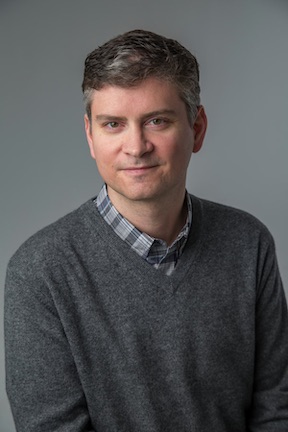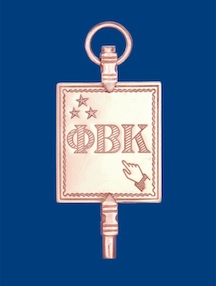
“Any art form that millions of people are engaging with every day,
that has the ability to do something. I think the show’s argument—
and my personal argument—would be that, yes, it can make you
a better person and that is the explicit goal of this show.”
—Michael Schur
By Daniel Myers
Phi Beta Kappa Member Michael Schur has become ubiquitous in the world of television comedy. Known for his hand in writing, producing, and creating some of the most beloved television shows of the past 20 years, Schur is making waves with his most recent creation, The Good Place, which seems to take to heart an idea not often thought of when discussing the sitcom: that television can make us better people.
Schur graduated Phi Beta Kappa from Harvard in 1997 with a degree in English, a degree that has certainly served his endeavors in television writing. Soon after graduating Schur became a writer on Saturday Night Live with a seven-year tenure that helped him land a role as an executive producer for The Office. Since The Office, Schur has created three of NBC’s most successful comedies: Parks and Recreation, which he co-created with Greg Daniels in 2009, Brooklyn Nine-Nine with Dan Goor in 2013, and most recently The Good Place.
While Schur’s first two creations are workplace comedies—with Parks and Recreation featuring workers in a local government department and Brooklyn Nine-Nine centering on the detectives of a New York police precinct—The Good Place marks a radical departure from the workplace model that has characterized his work since The Office. The Good Place, now in its fourth and final season, is a show about moral philosophy. The comedy centers on the afterlife of four characters who arrive in “The Good Place” after death only to discover that a mistake has been made: they certainly do not belong among the virtuous ranks of philanthropists, activists, and monks who they now mingle with. Despite the outlandish premise and the focus on what popular opinion has branded as “boring,” The Good Place is now “NBC’s highest-rated comedy series” according to Deadline.
For Schur, though, philosophy never seemed as divorced from comedy as one might think. In a recent panel discussion at the University of Notre Dame, Schur discussed how philosophy is already funny: “The Trolly Problem, to me, is inherently hilarious. A very, very serious philosopher said ‘imagine you’re on a trolley and there are five people on the tracks and the brakes fail. You can pull a lever and divert the trolley and only kill one person, what do you do?’ That’s hilarious! I’m pretty sure when I first heard the trolley problem in college I laughed out loud.”
The comedy stems from Schur’s—and the show’s—greater point about moral philosophy: it’s hard to meet the ethical standards philosophers lay out for people. During an interview with WBUR Radio Boston, Schur said: “My reaction when [researching the history of philosophy] was ‘this one seems right’ and then learning, ‘no there’s a lot of problems with it.’” This frustration with ethics led the show to develop into an incisive inquiry into what it means to be a good person. The then laid out what The Good Place is really asking: “The show has taken the position that what’s important isn’t ‘Are you a good person?’ — that’s the wrong question. The question is, ‘Are you trying to be good?’ Are you thinking about what you’re doing, why you’re doing it?”
Schur is certainly driven by a desire to grapple with what he calls the “fun, big, meaty, chewy issues” encountered in philosophy; even more importantly, he has a desire to bring these issues into people’s homes. As a Phi Beta Kappa member, Schur is doing his part to advocate for lifelong study of the humanities. For Schur, television is his way of delivering that education, as he explained at Notre Dame: “Any art form that millions of people are engaging with every day, that has the ability to do something. I think the show’s argument—and my personal argument—would be that, yes, it can make you a better person and that is the explicit goal of this show.”
The Good Place’s final season is now airing weekly on NBC streaming online and Shur’s other shows can also be found online. Schur is also executive producing two new shows, Abby’s and Sunnyside, with NBC.
Daniel Myers is a recent graduate of the College of Wooster with a bachelor’s degree in English and theatre and dance. The College of Wooster is home to the Kappa of Ohio chapter of Phi Beta Kappa.




